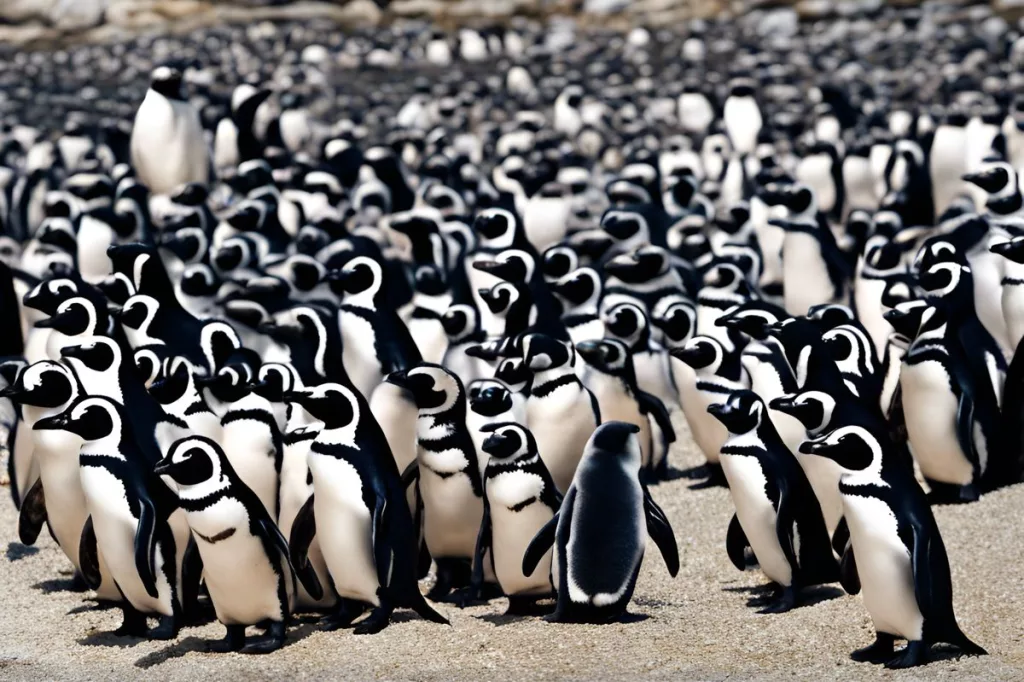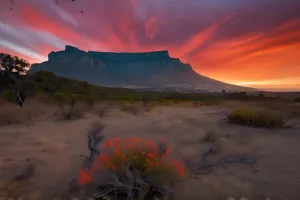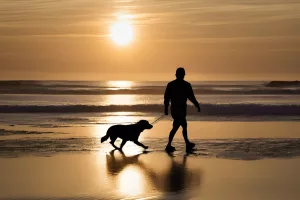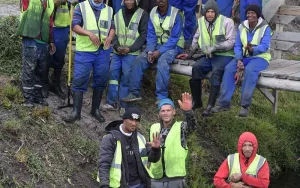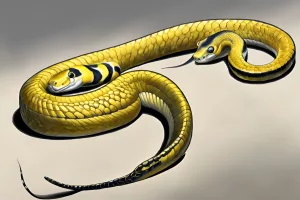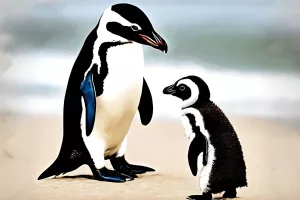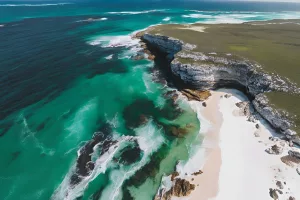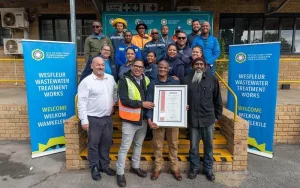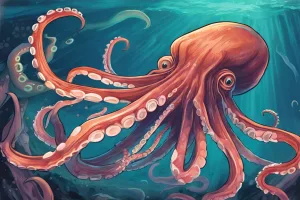The African penguin population is at risk of extinction due to a dwindling availability of prey, with conservationists predicting they could disappear entirely by 2035. The Simon’s Town colony is a beacon of hope, as it has managed to maintain stability largely due to the prohibition of commercial fishing for small pelagics in False Bay since the 1980s. Despite legal battles to replace ineffective fishing closures, the delicate balance between commerce and conservation highlights the need to safeguard Earth’s biodiversity.
Table Mountain National Park in South Africa is facing a crisis due to an alarming increase in fires, with 119 fires documented in one year alone. The fires are caused by a variety of factors ranging from everyday activities to natural phenomena like lightning strikes. Despite the challenges, TMNP has adapted its strategies and formed partnerships with firefighting organizations to combat the fires. The resilient individuals who work to protect the park every day showcase an unwavering love for the environment and an indomitable spirit.
Discover the best petfriendly campsites in the Western Cape, where you and your furry friend can embark on a delightful journey together. From the *wildlife wonderland* of Beaverlac to the *vineyard vacation* of Rivierzicht River Resort, there’s something for everyone. Just remember to check each site’s dog policies before booking and ensure your pet is *wellbehaved* and *respectful* of the environment and wildlife.
The Strawberry Moon not only holds astronomical significance but also cultural significance in many parts of the world. In some Native American cultures, the Strawberry Moon signifies the start of a new year, while in Europe, it is considered a time of heightened creativity and spiritual energy. In Chinese culture, the June full moon is celebrated as the Lotus Moon and symbolizes harmony and unity.
Cape Town is a beacon of hope for animal welfare, with organizations and partnerships working together to address the issue of stray and surrendered pets. The Cape Animal Welfare Forum (CAWF) is at the forefront of this initiative, and organizations like TEARS are playing a crucial role in providing care for homeless pets. Cape Town’s commitment to animal welfare serves as a blueprint for addressing this important issue, and the city is urging its citizens to support the cause.
Tony, a modernday adventurer, has redefined adventure by walking with African lions in the wild. His TikTok profile, @aroundtheworldwithtony, showcases a visible bond between man and beast, indicating mutual respect. This captivating narrative has ignited a spirit of adventure in many viewers, arousing a longing to savor the thrill of risk and uncertainty while evoking a profound reverence for the wilderness and its creatures. Tony’s videos evoke a deeper perspective on our relationship with nature and the wonders of venturing into the unknown.
The Bokramspruit River in Cape Town is a vital part of the local water system and a model for river upkeep. The City has allocated over R890,000 for maintenance work, which provides jobs and promotes socioeconomic growth. By removing vegetation, silt, and litter, and with residents playing their part in keeping the river clean, the vibrancy of the Bokramspruit River can be safeguarded for continued benefits to the local population. The future of the river lies in the hands of both the city authorities and its residents.
Recently, Plettenberg Bay in South Africa had an unusual spectacle on its serene shore when two yellowbellied sea snakes, highly venomous creatures with no antivenom available, were marooned on the beach by the tumultuous ocean. While it may be tempting to help, it is best to maintain a safe distance and contact a local expert or stranding network for assistance. However, the local experts were successful in rescuing the sea snakes, and this occurrence presents an opportunity for environmental awareness and appreciation of the interconnectedness of different species in the dynamic world.
SANCCOB is a critical conservation organization in Cape Town that runs the Chick Rearing Unit (CRU) to protect African penguin eggs and chicks. Due to the decline of the African penguin population, the CRU is feeling pressure and urgently needs renovations and expansion to care for more atrisk animals. The new building will allow SANCCOB to accommodate double the number of abandoned and rescued African penguin eggs and chicks and potentially increase release rates. The organization’s efforts are critical to the survival of the threatened African penguin species, which could face extinction by 2035 if the trend continues unchecked.
The community meetings held by the Cape Peninsula Baboon Management Joint Task Team aim to cocreate viable solutions specific to each locality, with community members actively participating in proposing solutions. Attendees will also receive essential information on baboon populations, proposed interventions, and implementation strategies. The initiative reflects a proactive and collaborative approach to sustainable baboon management, striking a balance between human settlement and wildlife conservation.
De Hoop Nature Reserve is a stunning 36,000hectare reserve in South Africa’s Overberg region, just a threehour drive from Cape Town. It offers a range of accommodations and is home to diverse wildlife, from Cape Mountain zebras to southern right whales. Visitors can enjoy hiking, biking, marine walks, and beachcombing while also supporting the reserve’s commitment to conservation and sustainable management. De Hoop is an adventurer’s playground and a biodiverse haven worth exploring.
South Africa has been transformed into a fairytale winter landscape with a rare sight of snowfall coating portions of the region, creating a scene more akin to a Northern Hemisphere Christmas card than an African vista. The weather change has been so profound that the South African Weather Service declared a level six warning for disruptive snow in numerous areas of the country until Tuesday. Residents and visitors have responded with enthusiasm to this unexpected weather phenomenon, sharing photos and videos of the snowfall with local media outlets.
Cape Town’s Melkbosstrand and Wesfleur wastewater treatment facilities have received the globally recognised ISO 9001 certification, highlighting the city’s commitment to highquality management standards and providing superior sanitation for residents and clients. The certification also enhances customer trust, promotes effective complaint resolution, and encourages process improvement and ongoing optimization. The facilities are also striving towards ISO 50001 certification for energy efficiency, and the city plans to acquire more ISO 9001 certifications for its other wastewater treatment facilities. This underscores the city’s dedication to environmental stewardship and its inhabitants.
Cape Town is full of surprises, especially on its beaches. Giant squids, Bryde’s whales, manta rays, and beaked whales have all been found washed up on the shore, giving people a glimpse of the ocean’s mysterious depths. Some beachgoers have even rescued stranded marine creatures, showing the interconnectedness between humans and nature. While some discoveries are heartwarming, others are heartbreaking, and some highlight the negative impact of human actions on marine life. Nevertheless, each new wave brings a new story, and Cape Town’s beaches are full of intriguing tales and treasures.
A group of organizations joined forces to pay tribute to Charles Darwin’s visit to the Cape of Good Hope, which shaped his theory of evolution and natural selection. The tribute involves a bronze memorial bust sculpted by a local artist, Johan Steyn, and a public crowdfunding campaign to raise funds for the project. The initiative highlights the profound impact of Darwin’s ideas and intellectual odyssey, which will be commemorated by the installation of the memorial bust at Jubilee Street.
South Africa is set to receive an unexpected snowfall with up to 10cm predicted in various regions, including the Cape Provinces, Lesotho, and neighbouring Namibia. The snow is expected to fall as early as Saturday in some areas and continue into next week in others. This unusual weather event presents a unique opportunity for residents to enjoy a winter wonderland and experience the rare occurrence of African snow.

